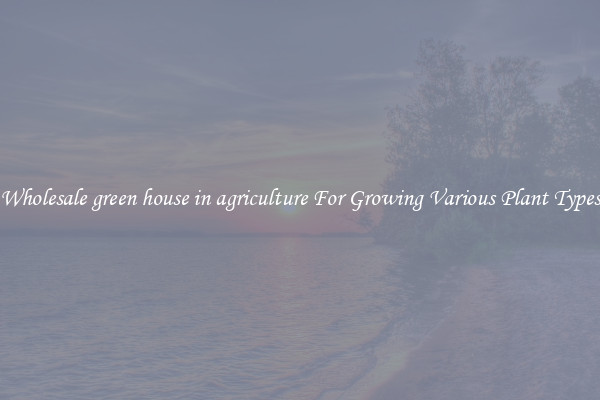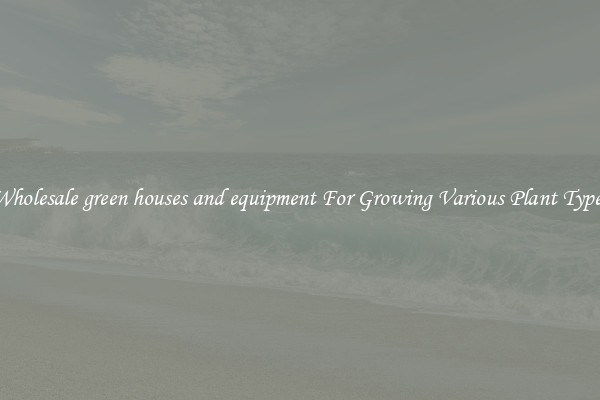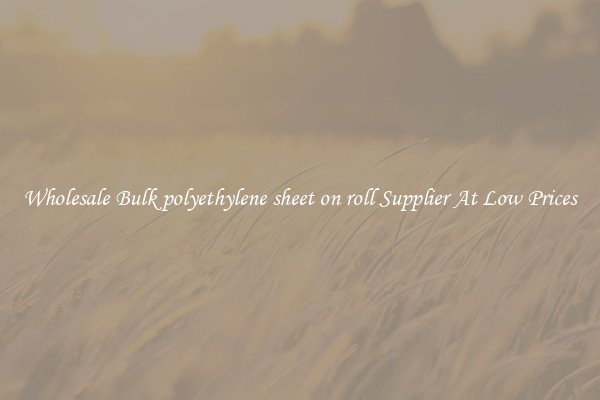Wholesale green house in agriculture For Growing Various Plant Types
Wholesale Greenhouses in Agriculture: A Haven for Growing Various Plant Types

Agriculture has always been an integral part of our lives, providing us with food and resources to sustain ourselves. Over the years, advancements in technology and farming practices have revolutionized the way we cultivate crops. One such innovation is the advent of wholesale greenhouses, a haven for growing various plant types.
Greenhouses are enclosed structures designed to create an optimal growing environment for plants. They offer protection against harsh weather conditions, pests, and diseases, allowing farmers to cultivate a wide range of crops throughout the year. Wholesale greenhouses take this concept a step further by catering to the needs of commercial farmers and nurseries.
These greenhouses provide a cost-effective solution for large-scale production. By centralizing the process, farmers can achieve economies of scale and reduce the overall production costs. Wholesale greenhouses often operate on a contract system, where farmers purchase or lease space in the greenhouse for a specified period. This ensures a steady supply of crops to meet market demands.
One of the significant advantages of wholesale greenhouses is the ability to control the growing environment. Temperature, humidity, light, and air circulation can be regulated to create ideal conditions for each crop. This level of precision allows farmers to grow plants that would otherwise be challenging to cultivate in a traditional outdoor setting.
Wholesale greenhouses are especially beneficial for growing delicate or exotic plant types. Tropical fruits, flowers, and herbs thrive in these controlled environments. The year-round availability of these plants enhances consumer access and opens new business opportunities for farmers.
Furthermore, the controlled environment in wholesale greenhouses minimizes the risk of pests and diseases. This reduces the dependence on pesticides and chemical treatments, making the crops healthier and more environmentally friendly. Additionally, the risk of crop failure due to extreme weather events is significantly reduced, safeguarding farmers against potential losses.
In recent years, the demand for organic produce has been on the rise. Wholesale greenhouses play a vital role in meeting this demand. They provide a controlled environment where organic practices can be implemented more effectively. Farmers can grow organic crops without the risk of contamination from neighboring farms or chemicals used in conventional agriculture.
In conclusion, wholesale greenhouses have become an essential component of the modern agricultural landscape. They offer a haven for growing various plant types and provide farmers with a cost-effective and sustainable solution for large-scale production. The controlled environment, reduced risk of pests and diseases, and the ability to meet the growing demand for organic produce make wholesale greenhouses a vital tool in the pursuit of a sustainable future in agriculture.

View details

View details

View details

View details








